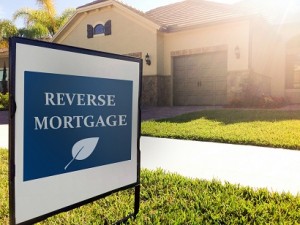 Whenever the words “reverse mortgage” are uttered, any Highlands TV viewer immediately makes the connection with one of several celebrity spokesmen who blanket the airwaves with commercials touting the concept. If you listen carefully, those reverse mortgage ads do actually describe the product with legal accuracy. If you have the standard degree of sales resistence most of us have developed after years of exposure to Madison Avenue pitches, you probably guess that instead of relying solely upon the celebrity spokesman’s trustworthiness, you’d better investigate further before running out and applying. Most people do.
Whenever the words “reverse mortgage” are uttered, any Highlands TV viewer immediately makes the connection with one of several celebrity spokesmen who blanket the airwaves with commercials touting the concept. If you listen carefully, those reverse mortgage ads do actually describe the product with legal accuracy. If you have the standard degree of sales resistence most of us have developed after years of exposure to Madison Avenue pitches, you probably guess that instead of relying solely upon the celebrity spokesman’s trustworthiness, you’d better investigate further before running out and applying. Most people do.
So it was surprising when the government’s Consumer Financial Protection Bureau found it necessary to issue a special advisory on the subject. Potential Highlands reverse mortgage applicants—that is, Highlands homeowners who meet the minimum age requirement of 62 ½—were warned “not to be deceived” by the “late night TV ads that seem too good to be true.” Without quibbling with the CFPB about when those commercials appear (you can see them almost any time after about 3 p.m.), it is easy to see how they might create broadly mistaken impressions on at least two counts. And it’s too bad, because although a reverse mortgage can be a useful instrument, it really can have nightmarish consequences for someone who doesn’t fully understand the concept and its ramifications.
The warnings were the result of the consumer watchdog organization’s focus group study that showed many viewers coming away with misimpressions following screenings of the ads. Many did not understand that a reverse mortgage is a loan. Others got the impression that a reverse mortgage is a government benefit—and worse, some thought it guaranteed that consumers could stay in their homes for the rest of their lives.
The fact is, these loans are simply a specialized way seniors can tap into their home’s equity: the value that has built up over the years. It’s true that they are designed so that the homeowners do not have to repay the loan until he or she passes away, sells or moves out—but it’s no guarantee that other factors (like taxes, homeowner’s insurance, and maintenance expenses) might not still cause a default should the borrower run out of money.
There are other fine print details that are not mentioned in most of the ads…and they’re every bit as important as the terms of any loan. Among those that are barely touched upon are the fact that there are costs and interest provisions attached to reverse mortgages—and the CFPB finds them to be relatively expensive.
Most Highlands homeowners are probably skeptical enough of any “too good to be true” pitch to automatically take a harder look—especially when it involves their Highlands home’s equity. If you have questions about financial matters having to do with that equity, your best bet is to discuss the details with a trusted financial advisor or a federally-approved housing counselor. And for any other questions about Highlands real estate, you needn’t hesitate to give me a call!


 You’re at home in Highlands, watching TV and trying to unwind, when all of a sudden here comes another baby boomer celebrity, looking into the camera, giving you his most sincere, trustworthy look, then assuring you that a “Reverse Mortgage” really isn’t too good to be true (even though it sounds like it is).
You’re at home in Highlands, watching TV and trying to unwind, when all of a sudden here comes another baby boomer celebrity, looking into the camera, giving you his most sincere, trustworthy look, then assuring you that a “Reverse Mortgage” really isn’t too good to be true (even though it sounds like it is).
